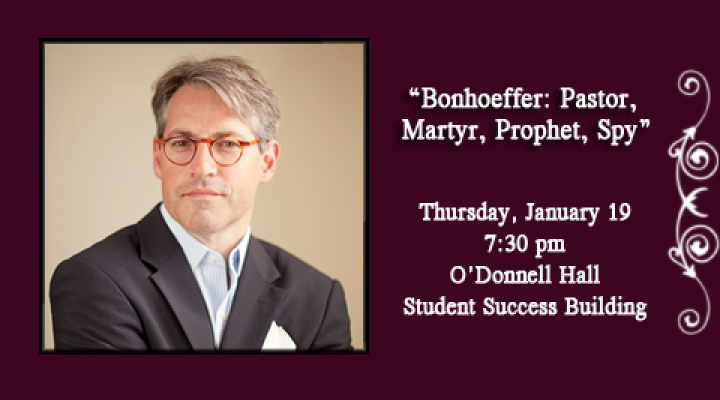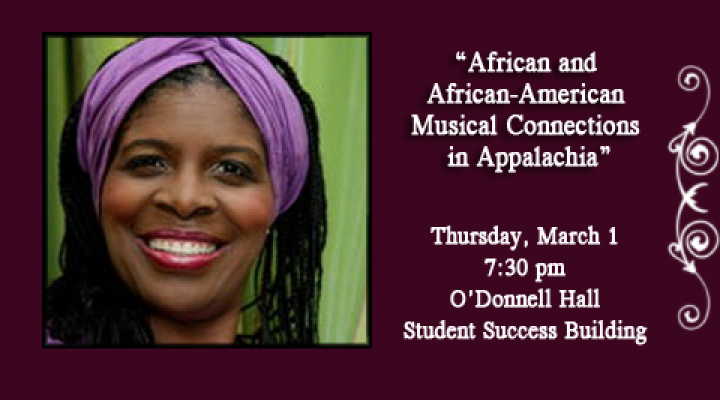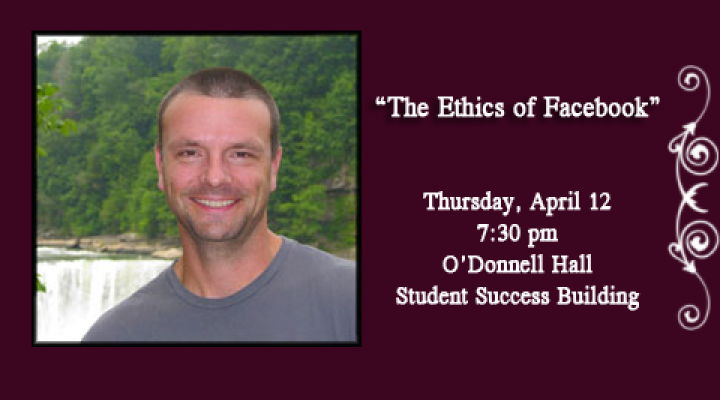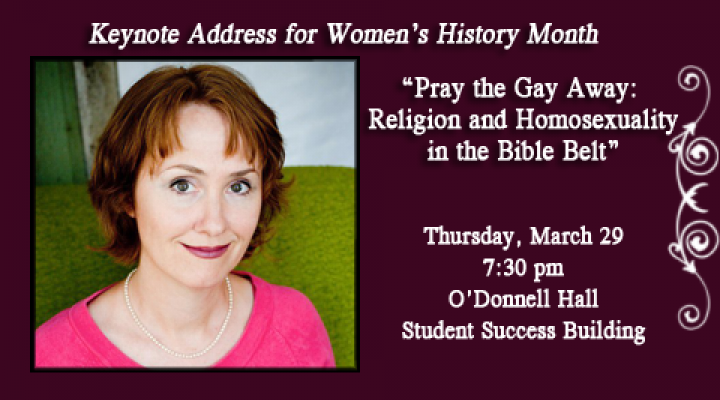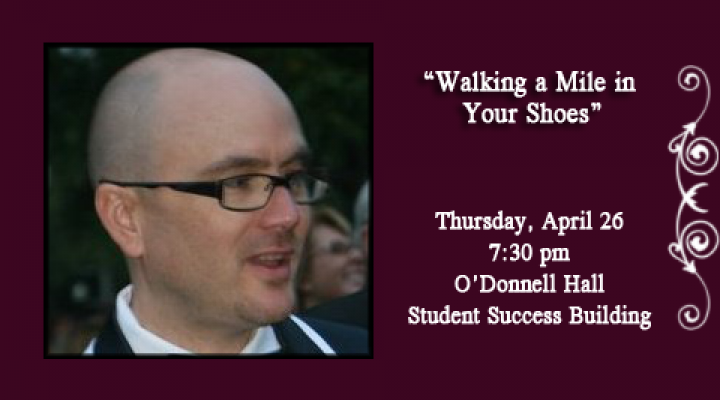Spring 2012 Speaker Biographies
Eric Metaxas
From: http://www.ericmetaxas.com/about-eric/
Eric Metaxas is the author of the acclaimed New York Times bestseller, Bonhoeffer: Pastor, Martyr, Prophet, Spy, which was recently named “Book of the Year” by the ECPA. Bonhoeffer also won the 2011 John C. Pollock Award for Biography awarded by Beeson Divinity School and a 2011 Christopher Award in the Non-fiction category. Called a “biography of uncommon power,” Bonhoeffer appeared on numerous 2010 “Best of the Year” lists and was featured in the Wall Street Journal, Publishers Weekly, The New Republic, Harper’s, Kirkus (starred review), NPR, FoxNews, C-SPAN’s Book TV, Christianity Today, The Weekly Standard, and First Things.
Metaxas is the 2011 recipient of the Canterbury Medal awarded by the Becket Fund for Religious Freedom. Previous medalists include Archbishop Charles Chaput and Elie Wiesel.
In a decidedly eclectic career, Eric Metaxas has written for VeggieTales, Chuck Colson, and the New York Times, three things not ordinarily in the same sentence. He is a best-selling author whose biographies, children’s books, and works of popular apologetics have been translated into German, Albanian, Portuguese, Spanish, Korean, Turkish, Galician, and Macedonian. The Hartford Courant has declared figuring him out “like trying to stick a pushpin in a cyclone.” Let us try.
Metaxas’ humor writing was first published in the Atlantic Monthly, and has appeared in The New York Times. Woody Allen has called these pieces “quite funny.” Eric’s book and movie reviews, essays, and poetry have appeared in The New York Times, The Washington Post, Regeneration Quarterly, Christianity Today, National Review Online, Beliefnet, and First Things. He has been awarded fellowships to Yaddo and the MacDowell Colony for his short stories. The cult-classic Don’t You Believe It! — his book-length parody of the Ripley’s “Believe It Or Not!” books — led novelist Mark Helprin to dub Metaxas “the true heir to the Far Side’s Gary Larson.”
For more information about Eric Metaxas, go to: http://www.ericmetaxas.com/about-eric/
Bob Zellner
From http://www.bobzellner.com/biography.cfm
Dr. Bob Zellner was born on April 5, 1939 and raised in south Alabama, the second of five boys born to Methodist minister James Abraham Zellner and school teacher Ruby Hardy Zellner. A 1957 graduation speaker at Murphy High School in Mobile, he received a BA from Huntingdon College, Montgomery, Alabama in 1961 with highest honors in Sociology and Psychology. After teaching at Highlander Folk School in Monteagle, Tennessee, Bob was the first white southerner to serve as Field Secretary for SNCC ("Snick"), the Student Nonviolent Coordinating Committee.
Arrested 18 times in seven states, he organized in McComb, MS., Albany, GA, Danville, VA, Talladega, Montgomery and Birmingham, AL, as well as New Haven, CT, and Boston. Zellner was charged with everything from criminal anarchy in Baton Rouge to "inciting the black population to acts of war and violence against the white population" in Danville, VA. From 1963 to 1965, Zellner studied race relations in the Graduate School of Sociology at Brandeis University. During Mississippi Freedom Summer of 1964 he traveled with Rita Schwerner while taking part in SNCC's and CORE's investigation of the disappearance of her husband Mickey, James Chaney, and Andrew Goodman.
When SNCC became an all black organization in 1967, Bob and his wife Dottie joined SCEF, the Southern Conference Educational Fund to organize an anti-racism project for black and white workers in the Deep South called GROW, Grass Roots Organizing Work, also called Get Rid Of Wallace. GROW built a residential educational facility in New Orleans and began organizing the Gulfcoast Pulpwood Association while working in Laurel, Mississippi where a wildcat strike involving black and white Masonite factory workers and woodcutters spread across the southern states.
Following Nixon's ping pong diplomacy in 1972, Bob Zellner spent six weeks in China visiting paper plants, studying pulpwood harvesting, and lecturing at the National Institute for Minorities in Peking on SNCC, SCEF and multicultural work in the white community.
Beginning in the mid-sixties Bob worked on documentary and feature films, traveling to Europe, Africa, the Caribbean, and Mexico. The film "Mississippi Burning" so distorted the role of the FBI in the movement that Bob toured college campuses lecturing on the real history of the struggle. J. Edgar Hoover and the FBI, far from being heroes of the movement, hounded Zellner's friend and mentor, Dr. Martin Luther King and launched the Counter Intelligence Program (COINTELPRO) a U.S. government attack designed to destroy the Freedom Movement.
In the early 1990s, studying at Tulane University for a Ph.D. in History, Zellner wrote a dissertation on the southern civil rights movement. While working on the dissertation, he taught the History of Activism at Rosemont College, PA. and Southampton College of Long Island University. Julian Bond, now the National NAACP Chairman and Bob organized the National Civil Rights Coordinating Committee. Bob works with the Eastern Long Island Branch of the NAACP headed by Lucius Ware and with the Southampton Town Anti-Bias Task Force under the leadership of Dianne Rulnick.
As co-chair of the Town of Southampton Anti-Bias Task Force in 2000, Bob's right elbow was broken when he mediated a dispute between the police and the Shinnecock Nation. Troopers attacked Dr. Zellner and members of the tribe who were protecting ancestral burial grounds from developer's bulldozers. All who were injured were charged with disorderly conduct and resisting arrest. A Federal jury, in 2007, agreeing with civil rights attorney Frederick Brewington, ruled that Zellner and the Shinnecock were victims of false arrest, malicious prosecution, and denial of civil rights. They were awarded compensatory and punitive damages.
In 2005, Bob Zellner was a featured Civil Rights Luminary in the award winning documentary "Come Walk in My Shoes". The Annual Faith and Politics Congressional Pilgrimage to Selma, Alabama and other sites of the freedom struggle was led by the Honorable John Lewis and filmed by Robin Smith, award winning documentary director and producer and president and founder of VideoAction. The documentary is airing periodically on PBS through 2010.
Bob's memoir, "The Wrong Side of Murder Creek, A White Southerner in the Freedom Movement", with Constance Curry and foreword by Julian Bond, was published by New South Books in the November, 2008. In August 2008, the Library Journal gave the book a Red Star Review: "He tells a story that is sometimes horrific, always interesting and ultimately inspirational about a white Southerner's commitment to racial justice."
Arnold Rampersad
From: http://english.stanford.edu/bio.php?name_id=102
Arnold Rampersad was a member of the department from 1974 to 1983, before resigning to accept a position at Rutgers University. Since then he has taught there and at Columbia and Princeton before returning to Stanford in 1998. He has just published Ralph Ellison, a biography of the novelist (1914 - 1994). His other books include The Art and Imagination of W.E.B. DuBois (1976); The Life of Langston Hughes (2 vols., 1986, 1988); Days of Grace: A Memoir (1993), co-authored with Arthur Ashe; and Jackie Robinson: A Biography (1997). In addition, he has edited several volumes including Collected Poems of Langston Hughes; the Library of America edition (2 vols.) of works by Richard Wright, with revised individual editions of Native Son and Black Boy; and (as co-editor with Deborah McDowell) Slavery and the Literary Imagination. He was also co-editor, with Shelley Fisher Fishkin, of the Race and American Culture book series published by Oxford University Press. His teaching covers such areas as nineteenth- and twentieth-century American literature; American autobiography; race and American literature; and African-American literature. From 1991 to 1996, he held a MacArthur Foundation fellowship. He is an elected member of the American Academy of Arts and Sciences and the American Philosophical Society. He is a 2010 recipient of the National Humanities Medal.
Bill Ellis
William E. Ellis graduated from the University of Kentucky with a Ph.D. in history in 1974. He taught for four years in high school, three years in a junior college, and twenty-nine years at Eastern Kentucky University before retiring in 1999. He is the author of over thirty journal articles, and the author of six books, the latest, A History of Education in Kentucky, published in 2011. He received a Fulbright grant to Massey University in New Zealand in 1989. He won the 1999 Governor’s Award for Robert Worth Bingham and the Southern Mystique. In addition to writing a column for Kentucky Monthly magazine, his next major project is a history of humor with an emphasis on Kentucky as a crossroads of archetypal American humor.
Kathy Bullock
Dr. Kathy Bullock is Professor and Chair of the Department of Music at Berea College. A native of Washington, DC, she earned a bachelor’s degree in music with a minor in psychology from Brandeis University, and a master’s degree in music theory and a doctoral degree in music theory from Washington University in St. Louis. At Berea College, she directs the Black Music Ensemble, a 70-voice choir that specializes in performance of African-American sacred music. In addition, she is a member of the American Spiritual Ensemble, a critically acclaimed professional group whose singers have thrilled audiences around the world with their dynamic renditions of classic spirituals and Broadway numbers.
Sudhir Venkatesh
Sudhir Venkatesh is William B. Ransford Professor of Sociology, and the Committee on Global Thought, at Columbia University in the City of New York.
His most recent book is Gang Leader for a Day (Penguin Press). Gang Leader received a Best Book award from The Economist, and is currently being translated into Chinese, Korean, Japanese, German, Italian, Polish, French and Portuguese. His previous work, Off the Books: The Underground Economy of the Urban Poor (Harvard University Press, 2006) about illegal economies in Chicago, received a Best Book Award from Slate.com (2006) as well as the C. Wright Mills Award (2007). His first book, American Project: The Rise and Fall of a Modern Ghetto (2000) explored life in Chicago public housing.
Venkatesh’ editorial writings have appeared in The New York Times, the Chicago Tribune, and the Washington Post. He writes for Slate.com, and his stories have appeared in This American Life, WIRED, and on National Public Radio. His next book, under contract with Penguin Press, will focus on the role of black market economies—from sex work and drug trafficking to day care and entertainment—in the revitalization of New York since 1999.
Venkatesh is completing an ethnographic study of policing in the Department of Justice, where he served as a Senior Research Advisor from 2010-2011.
Venkatesh’s first documentary film, Dislocation, followed families as they relocated from condemned public housing developments. The documentary aired on PBS in 2005. He directed and produced a three-part award winning documentary on the history of public housing for public radio. And, he recently completed At the Top of My Voice, a documentary film on a scholar and artist who return to the ex-Soviet republic of Georgia to promote democracy and safeguard human rights.
Venkatesh received his Ph.D. in Sociology from the University of Chicago. He was a Junior Fellow at the Society of Fellows, Harvard University from 1996-1999, and an NSF CAREER award recipient in 2000. He holds a visiting appointment in Columbia University’s Law School and he is a voting member of the Institute for Research in African-American Studies.
Bernadette Barton
Bernadette Barton (Ph.D. University of Kentucky 2000) is Associate Professor of Sociology and Women’s Studies at Morehead State University. Her research and teaching interests include sexuality, gender, popular culture, religion, qualitative methods and the sex industry.
Barton is the author of Stripped: Inside the Lives of Exotic Dancers, (2006, New York University Press). She has published in Gender & Society, Sexuality & Culture, theJournal of Contemporary Ethnography, the Journal of Homosexuality, Feminist Formations, Qualitative Sociology, the Journal of Lesbian Studies, Symbolic Interaction, On the Issues Magazine and Alternet.
Barton’s current research project examines the experiences of gay men and lesbians, and is the focus of a new book titled, Pray the Gay Away: the Extraordinary Lives of Bible Belt Gays (forthcoming September 2012, NYU Press), and a multi-media presentation titled The Toxic Closet: Christianity and Homosexuality in the Bible Belt.
Michael Austin
Michael Austin is associate professor of philosophy at Eastern Kentucky University, where he works primarily in ethics, philosophy of religion, and philosophy of sport. He has published eight books, including Conceptions of Parenthood (Ashgate, 2007), Running and Philosophy (Wiley-Blackwell, 2007), Football and Philosophy (University of Kentucky Press, 2008), and Being Good: Christian Virtues for Everyday Life (Eerdmans, 2012). He is currently working on a book project entitled The Virtue of Humility: A Study in Analytic Moral Theology. More importantly, he is married with three daughters. He also blogs about ethical issues in daily life through Psychology Today at Ethics for Everyone: http://www.psychologytoday.com/blog/ethics-everyone.
Matt Winslow
Matthew P. Winslow earned a B.A in psychology from Macalester College in St. Paul, MN, a M.A. in social psychology from UC Santa Cruz, and a PhD in social psychology from the University of Minnesota. He started teaching at Eastern Kentucky University in 1998, where he is an Associate Professor in the Psychology Department. He teaches courses on social psychology, political psychology, sex, prejudice, empathy, and evolutionary psychology. His research interests include empathy, prejudice, media bias, and self-regulation.
ABSTRACT: What can we do about problems like prejudice, aggression, rudeness, and intolerance? I will propose that any answer must involve empathy. After a brief description of empathy from a psychological perspective, I will address the barriers to empathy, what empathy can do for us, and how we can increase empathy in all people.
